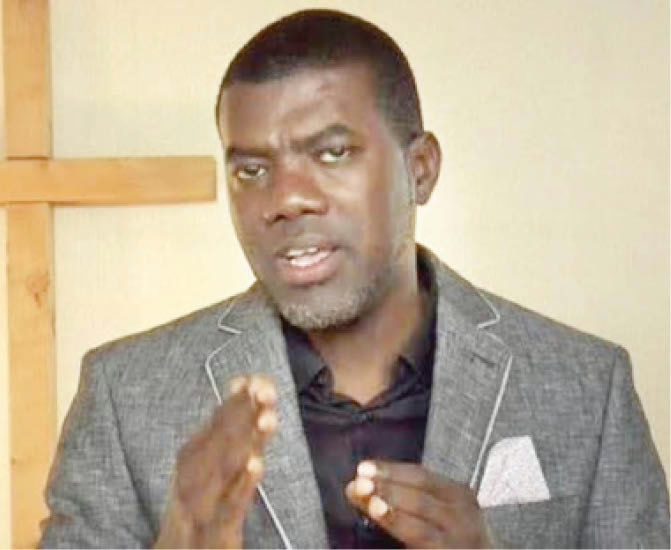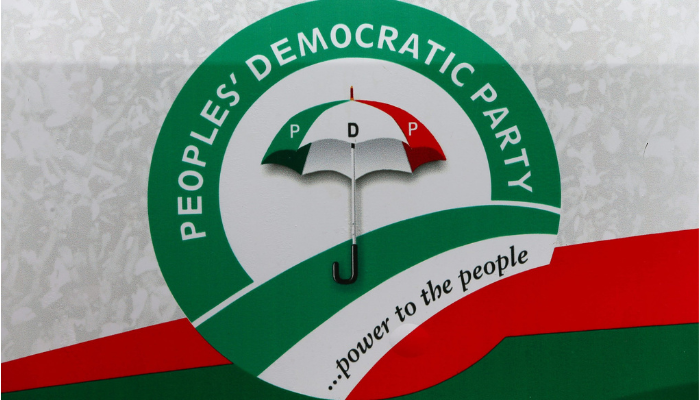Jonathan Tepperman’s book, “The Fix”, is about how some nations fixed significant social challenges like inequality, corruption, and civil wars using innovative leadership and policies. No one has yet written a book about how nations fix profligacy. Therefore, it is justifiable that Nigerian leaders have not bothered to read a book that does not exist. When such a book is eventually written, Nigeria’s chronicle of shameless profligacy will qualify as a unique case study. It is perceived as a culture our elite have come to embrace or tolerate as an acceptable national social habit. Profligacy, defined as reckless or wasteful extravagance, is a concern in various aspects of Nigerian society. It touches different levels, from personal lifestyle choices to government spending and business practices. This culture of profligacy, if left unchecked, will continue to drain our resources, hinder our development, and perpetuate a cycle of corruption and mismanagement.
Social habits are ingrained behavioral patterns that shape societies and influence how things are done. It might have a good or bad impact. Andrew Sykes ,co-author of “The 11th Habit“believes that the collective culture of a people shapes their habits, and habits cyclically reinforce culture. The habits of a nation reflect its values. This habit of profligacy among Nigeria’s ruling cadre is interconnected with the culture of corruption, lack of accountability in public life, short-term thinking, and lack of personal stake in the Nigerian project. Most importantly, it is proof of a total disconnect from reality. Since the Nigerian civil war, a deeply ingrained culture of wasteful expenditure and consumption-driven governance has plagued successive Nigerian governments. However, this is not a fate we are bound to. With the right cultural shifts and systemic reforms, we can break free from this cycle and build a more responsible and prosperous Nigeria.
Tinubu MEDICAL CONSULTANTS REVEALED HOW MEN CAN NATURALLY AND PERMANENTLY CURE POOR ERECTION, SMALL AND SHAMEFUL MANHOOD, AND INFERTILITY ISSUES WITHOUT SIDE EFFECTS. STOP THE USE OF HARD DRUG FOR SEX! IT KILLS!!!..
There is substantial empirical evidence linking this culture of wastefulness to our oil economy, which provides the government with oil revenues at all levels without accountability. Oil receipts have increased spending, often on non-essential projects that do not benefit the citizens. With an abundance of oil money and less emphasis on accountability and transparency, an environment of profligacy became prevalent and is now a national social habit. This profligacy, in turn, fuels corruption and mismanagement, creating a vicious cycle that hampers our progress and development. It is crucial that we recognise and address this interconnectedness to pave the way for a more responsible and accountable Nigeria.
There is no responsible public affairs management culture, which feeds the decadent habit of wastefulness that our elite has adopted. Our weak institutions encourage mismanagement since they cannot enforce laws and regulations. A political patronage and nepotism culture has made us prone to wrong priorities, and we need the ability to plan strategically. Oversight by the legislature is highly compromised. Decisions made by public authorities are now driven more by personal interests than by sustainable use of resources for common interests due to a combination of economic pressure and poverty.
The Nigerian government is often criticised for high spending on non-essential items, such as luxury cars for officials, unreasonable cost of renovation of offices and accommodation, large delegation to foreign trips and frequent travel expenses. This is particularly controversial given the country›s significant economic challenges and infrastructural gaps . Corruption is a considerable issue, with funds frequently misappropriated or embezzled. High-profile cases of public funds being diverted for personal use contribute to a culture of extravagance among some officials. The civil service and government agencies often have large, inefficient workforces, leading to unnecessary expenditures on salaries and administrative costs.
Examples litter our landscape to prove that there is nothing untoward in the culture of profligacy. For brevity and conciseness, I will give four examples. First, NNPC, the national oil company, spent $25 billion (over N12 trillion) over 20 years on turnaround maintenance of Nigeria’s four refineries, yet none can refine a drop of oil. The average cost of building a 350,000-bpd refinery is about $ 3.5-5 billion. This may not convince you about a national habit that has calcified. Between 2010 and 2020, crude oil theft led to the disappearance of 619.7 million barrels of oil worth N16.25 trillion, according to NEITI, an extractive industry transparency watchdog. None of these two high-profile cases resulted in arrest, prosecution, or national protest. It is normal and an acceptable national habit for the elite and average citizen. You will be tempted to think that this habit of national profligacy is restricted to the oil and gas industry. You are dead wrong!
Second, how can we quickly forget what qualified for a national embarrassment in 2023 when the government registered 1,411 persons—a mixture of court jesters, government officials, professionals, a sprinkle of environmental activists, academia, and political jobbers for COP 28 in Dubai? Nigeria had the third highest delegation to COP 28, even though we contribute less than 0.0001% to climate change and its minimal impact on us. A public uproar was raised, but it came down before long because it is our culture and an acceptable habit amongst the elite.
Advertisement
Third, most recently, Nigeria’s delegation, according to The Cable ,a digital news platform , was the largest among 187 countries to the International Labour Organisation’s (ILO) 112th conference in Geneva, Switzerland. This is happening at a time when the economy of the country is in some form of life support.
The final example that raised curiosity was the news that the government reportedly spent N90 billion to subsidise the cost of the 2024 Hajj pilgrimage for citizens. The arithmetic of a huge subsidy for what ought to be a private religious obligation in a period of economic distress required advanced economic numeracy to solve. The list of our profligate habits as a nation is unending.
Profligacy is not only akin to the political class and government. We see a preponderance of activities that scream profligacy at personal and social life levels. Nigerians are known for hosting grand and often extravagant celebrations, including weddings, birthdays, and funerals. These events can involve large guest lists, expensive venues, elaborate decorations, and abundant food and drink. There is a strong emphasis on displaying wealth and status, often through acquiring luxury goods such as high-end cars, designer clothing, and expensive jewelery. This can sometimes lead to excessive spending and financial strain. At social events, it is common to see money being “sprayed” or thrown at people, particularly the celebrants, as a sign of generosity and celebration. This practice, while culturally significant, is often seen as wasteful. EFCC is working hard to clamp down on this practice.
There is often societal pressure to conform to specific standards of appearance and lifestyle, leading individuals to spend beyond their means. This includes pressures to host large, expensive events or to own the latest luxury items. Maintaining social prestige and not “losing face” in many Nigerian communities can lead to extravagant spending. This can involve keeping up appearances through high expenditure on clothes, homes, and social activities. Both the government and private individuals often accrue significant debts to finance their extravagant lifestyles or projects, leading to financial instability and long-term economic challenges. Resources are sometimes misallocated to non-essential projects or luxurious expenditures, neglecting crucial areas like healthcare, education, and infrastructure.
In the business sector, some Nigerian corporations, especially those in the oil and gas sector, tend to pursue luxurious corporate lifestyles, including high-end office spaces, expensive company retreats, and lavish entertainment expenses. There are over-invoicing and kickbacks, where inflated contracts and procurement costs are used to siphon funds for personal gain.
Our entertainment industry is the window for showcasing opulence and luxury. Our Nollywood and Afrobeat often feature extravagant displays of wealth. Music videos and films frequently showcase luxury cars, opulent houses, and designer outfits. Our celebrities, including musicians, actors, and influencers, often lead lavish lifestyles, displaying their wealth and success through expensive purchases and luxurious vacations. This creates a culture of aspirational spending among fans and the public.
Understanding and addressing profligacy in Nigeria requires a multifaceted approach that includes cultural shifts and systemic reforms. Leaders have to led by example . We need to implement stricter regulations and oversight on government spending, enhancing transparency and accountability, and reducing waste in public sector expenditures; promote cultural values that prioritize modesty and prudent financial management over ostentatious displays of wealth; increase financial literacy among the public to encourage responsible spending and saving practices; and enhance corporate governance standards to reduce wasteful spending and corruption in the business sector.
Early signs are that those in power today have not only adopted the worst practices of the past but have also positively embraced them. If we continue along the same path, we will be stuck in an endless economic crisis and stagnation. Nigeria and Nigerians deserve better leadership in combating profligacy! We must escape this vicious cycle that has brought us to the quagmire we are in now.











